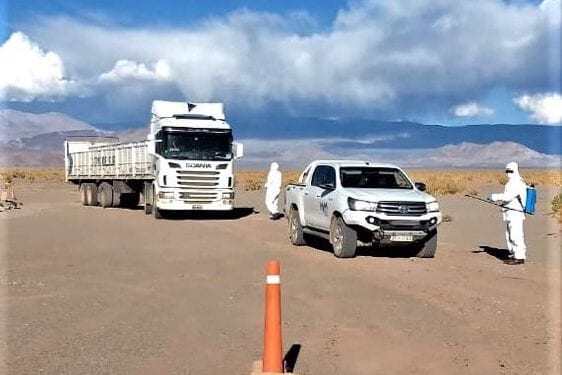Study Highlights Lithium Brine Development’s Significant Advantages
Lithium explorer and developer Lake Resources NL (ASX:LKE; OTC:LLKKF) has revealed new research has shown the potential value of the company’s Kachi Lithium Brine Project in Argentina.
The new research follows up the recent release of the successful Pre-Feasibility Study (PFS) concerning its sustainable and scalable direct extraction process.
Lake’s Managing Director, Steve Promnitz said the research by a leading Hong Kong-based analyst highlights Kachi’s “significant and sustainable competitive advantages” including its ability to produce a 99.9% lithium carbonate battery-grade product with low impurities, based on a sustainable process, as sought by electric vehicle (EV) makers.
The research references the production of the samples from the pilot plant modules as being a critical value catalyst for Lake. The report also highlights the growing global demand for lithium as EV penetration increases, yet challenges to supply are expected to result in growing supply deficits by the mid-2020s, particularly for battery-grade product.
Following Lake’s recent release of the Kachi PFS, the company has intensified discussions with downstream participants and financers.
The company is also processing lithium brine samples from Kachi at its technology partner, Lilac Solutions’ direct extraction pilot plant module in Oakland, California. Lilac has been limited to basic services while “shelter in place” restrictions are in place, but these are currently planned to be lifted next week, which will allow Lilac to resume full operations and allow other service providers to re-open, that are critical to Lilac’s operations.
The importance of new projects capable of producing a battery-grade product has been highlighted by recent investments announced by Europe in battery minerals, including France (US$8 billion), Germany (more than US$1 billion) and the European Union (US$88 billion). China, the world’s biggest EV market, has also extended state subsidies and tax breaks for “New Energy Vehicles,” while South Korea’s US$110 billion “New Green Deal” includes substantial investment in renewable energy.
EVs have been prioritised as automakers reopen, according to discussions in the sector.
Considerable interest has been shown in the battery materials supply chain, as evidenced by Lake’s recent participation in international conferences and industry analysts Benchmark Mineral Intelligence’s “EV festival” held this week with thousands of participants from the EV and battery manufacturing sector and upstream materials supply.
“Following the successful completion of the PFS, our efforts are now firmly focused on delivering multiple high purity lithium carbonate samples from the 40,000 litres of Kachi brines being processed by Lilac,” Mr Promnitz said.
“The results are central to the next round of discussions with downstream EV and battery makers and financiers and we have every confidence they will be game changer for us.
“EVs and battery minerals will be essential to the world’s post-pandemic future as shown by the recent investments by Europe and Asia, yet EV makers are unable to obtain sufficient battery-grade supply.”
“The research published is an excellent reference point for our stakeholders and reflects the unlocked value shareholders are holding.” “New projects such as Lake’s Kachi project, which can supply a battery-grade product with low impurities, will be essential in supporting the growth of the EV sector, and with a continued pricing disparity between high and low-grade product, we are in an excellent position to advance our flagship project.”












